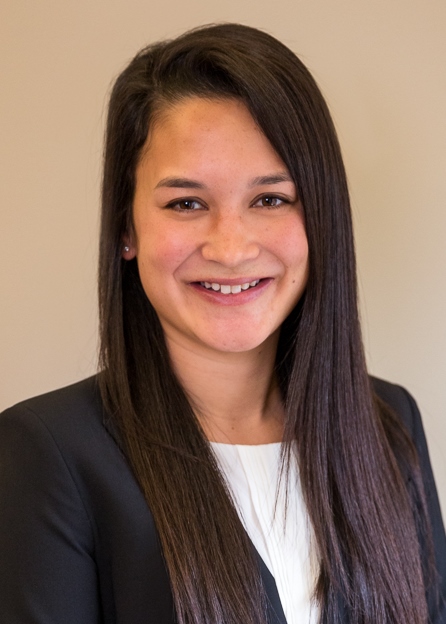Kirr Marbach Making Tough Decisions For Successful Long Haul
The following is an exerpt from Emerging Manager Monthly’s January 2020 Edition.
Equity manager Kirr Marbach & Company has been around for more than 40 years based in part on having the conviction to make the hard decisions when necessary.
Perhaps no decision evinces that conviction more than the firm’s move to drop its domestic small-cap value strategy and reorient itself to completely focus on its flagship all-cap product.
The firm launched the small-cap strategy in January 2012 and was able to build the strategy up to $20 million from existing clients within three years and generate top quartile numbers since inception but ultimately decided to pull the plug on the strategy in July 2018, CIO and Portfolio Manager Mark Foster said.
“The $20 million essentially came from talking to existing clients, but as we were trying to attract new clients, talking to the consultants and emerging managers-of-managers, we just couldn’t get any of those doors to open,” Foster said.
Foster attributes the amount of assets in the product and the firm, which runs roughly $550 million overall, as well as the lessened interest in value strategies in recent years as hurdles that led to the decision to drop the strategy, along with the additional original research required in running a small-cap strategy as reasons.
“I think the thought was that we would be patient waiting for value to come back if we felt like that was the only impediment,” Foster said of the decision. “I think the bigger impediment was just the size. Most firms were telling us if you get to $50 million or $100 million [in the strategy] we’ll take a look at it…trying to get from $20 million to $100 million was too hard of a slog to do and candidly we didn’t see how we’d get there. We were able to raise assets from our existing client base. We’d done it for a number of years and had some success in terms of performance but couldn’t connect the dots.”
Foster and the team feel that the flagship all-cap fund has enough runway to get them comfortably to $2 billion in assets through the “high-net-worth retail-oriented” marketplace without necessarily having to head back too far back down the institutional path.
“We initially felt like we wanted to try [institutional] because we had a good track record and performance numbers and that that could translate,” said Foster, who noted that the firm’s assets have historically been split between high-net-worth and small to middle market institutional clients. “As I said we had a modest amount of success doing that, but not enough to sustain.”
While Kirr Marbach was able to get on a pair of platforms—Merrill Lynch and RBC, namely—Foster noted that building a client base still takes a lot of work.
“Just getting on the platform doesn’t really do much for you in the sense that you’ve still got to be able to drive that demand through,” Foster said. “It takes I think a fairly robust sales force to be out actively calling on brokers, financial advisors, and those folks in order to generate that interest.”
Kirr Marbach takes a bottom-up value approach to its all-cap strategy with a relatively concentrated portfolio of approximately 40 names, 50% to 60% of which are in the mid-cap space, Foster said, adding that the firm employs some soft risk parameters including no name comprising more than 6% of the portfolio.
“Today we’re finding a lot of turnarounds. Our work has found that an external ceo coming into a company that has struggled has been a significant catalyst in changing the culture and financial fortunes of that company,” Foster said. “There’s a number of names in our portfolio that reflect that.”
Foster and his team, which includes Analysts Roger Lee and Colin Foster, act as generalists in reviewing a report each week highlighting a bucket of recent scenarios including any spinoffs, ceo changes and restructurings before doing a deep dive and following up with company management.
“We do a fair amount of time talking to companies and stuff like that, which a lot of our competitors don’t do,” Foster said. “We think we bring something a little different to the table, but we haven’t spent a lot of time historically trying to get that message out.”
Getting the message out is something the Kirr Marbach team is beginning to put more of a concerted effort toward, Foster explained, noting that the firm will likely focus on continuing to expand relationships with high-net-worth investors.
“I think [institutional] is still a viable place for us, but over the last year we’ve probably put more emphasis on the high-net-worth market because it doesn’t have that same barriers to entry that the institutional side has and I don’t’ think that’s unique to us,” he said.
In a challenging business with high impact from market forces outside a manager’s control, Foster and the Kirr Marbach team believe they can continue to make the right decisions to deliver for clients over the long haul.
“The business is challenging these days, there’s a lot of things impacting it, the move from active to passive with ETFs and index funds plus the struggles of value are well documented over the course of the last several years, but we’ve been around a long time and those things tends to go in cycles and my guess is this is no different than what we’ve seen historically,” he said.
Subscribe
Subscribe to stay up to date with the latest news, articles and newsletters from Kirr Marbach.













